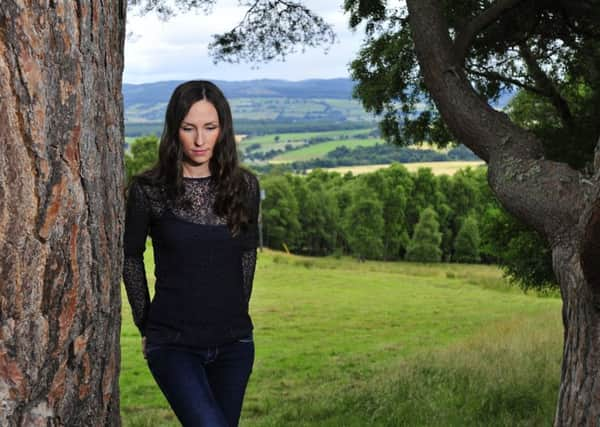Gaelic singer to fight '˜cultural erosion' with children's books


Julie Fowlis has embarked on a long-term project to chart centuries of traditional stories, songs, poetry and legends linked to the landscape around Loch Ness.
The North Uist-born singer has revealed she started work on the “cultural mapping” project after feeling disconnected to her surroundings living just outside Inverness.
Advertisement
Hide AdAn initial project to investigate the cultural heritage of the Strathnairn area south of Inverness will inspire an initial series of books, which Fowlis is working on with illustrator Eilidh Lucas and translator Raghnaid Sandilands. Fowlis, a mother of two young girls, is hoping to record accompanying audio guides, having started to create new music to accompany long-forgotten or little-known Gaelic songs and poems, some of which touch on ancient battles that were fought in the area.
Fowlis revealed details of the project while she delivered the prestigious Sabhal Mòr Ostaig Lecture at the Gaelic college on the Isle of Skye, where she studied herself.
Fowlis said: “When I go to Uist I can see and hear songs and stories in the landscapes. I hear them in the lochs, on the machair, by the shore.
“I can see poets and singers, who passed away many years ago (sometimes centuries ago) in houses, on crofts.
“I can hear rhymes about wells, about fairies, about weather, about superstition.
“I can hear songs about cows being washed up on the shore, or seals who have come from Scandinavian royalty or pirate seamen whose ships lie wrecked beneath the water.
Advertisement
Hide Ad“I hear songs of waterhorses, witches, boats and sailors, wine and whisky, love, drowning, loss, politics, war, land raids, emigration. And as I travel around the island, songs and stories light up the landscape.
“And where I live now? I was suddenly struck by how I do not have that. A place which is now my home, and where we are raising our children, who speak Gaelic. And yet I speak Gaelic every day. I know snippets of local song and story, but they are distant somehow.
Advertisement
Hide Ad“Their presence is not celebrated in the same way. Local connection to all of this has been erased to a large degree with the loss of the language, and it simply does not have the same reach. But it still exists.”